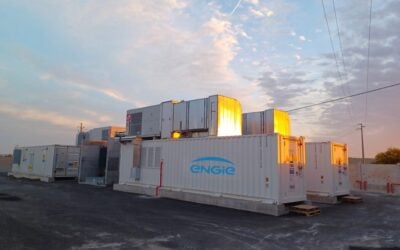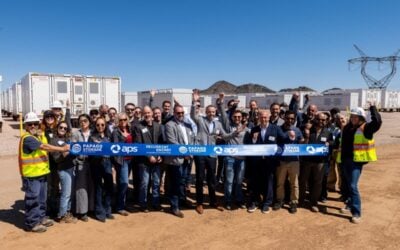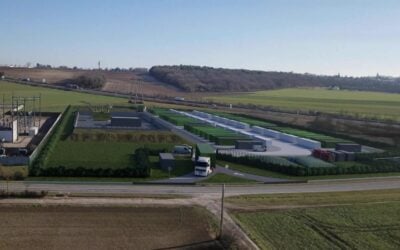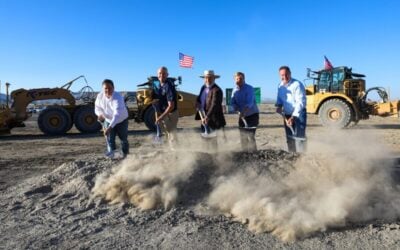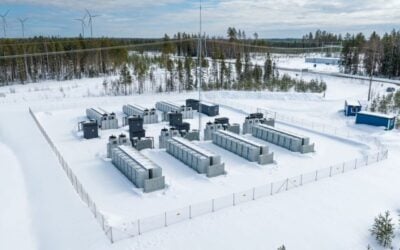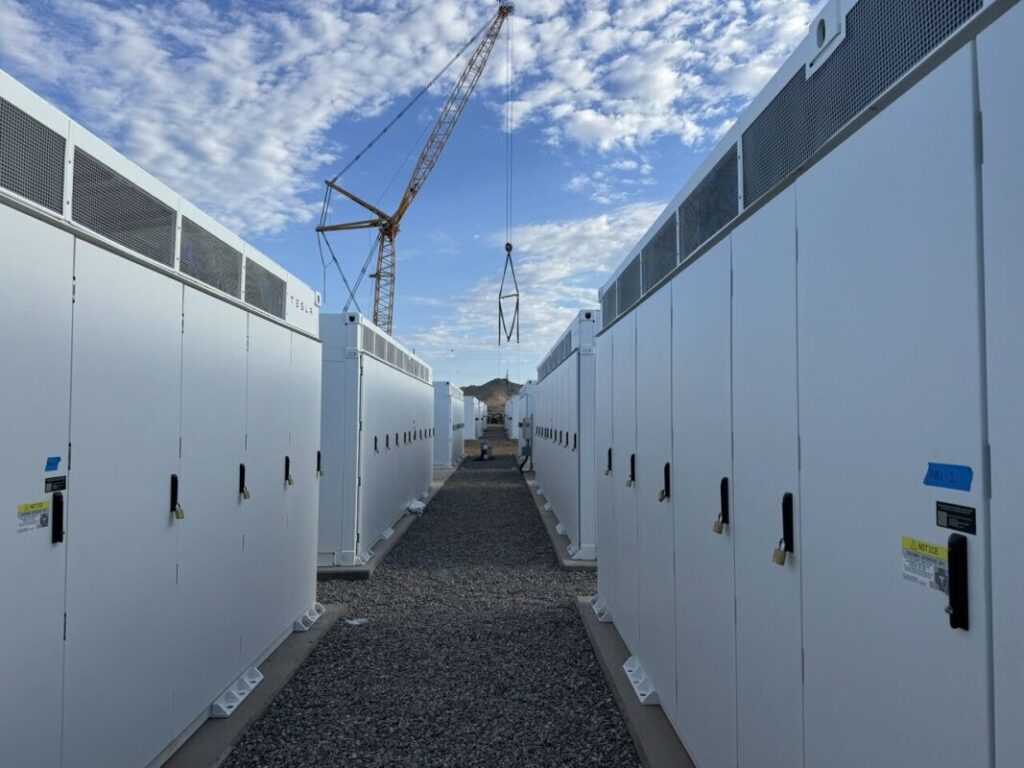
Strata Clean Energy has signed another tolling agreement with utility Arizona Public Service (APS) for a large-scale standalone battery energy storage system (BESS) project.
The vertically integrated US-headquartered solar PV and energy storage developer announced the deal with APS earlier this week (12 November) for its 100MW/400MWh White Tank Energy Storage Project.
Enjoy 12 months of exclusive analysis
- Regular insight and analysis of the industry’s biggest developments
- In-depth interviews with the industry’s leading figures
- Annual digital subscription to the PV Tech Power journal
- Discounts on Solar Media’s portfolio of events, in-person and virtual
Located in Avondale, in Arizona’s Maricopa County, the BESS is scheduled to go into commercial operation on APS’ grid in April 2027. The tolling agreement—which gives the utility full dispatch rights to charge and discharge the Strata-owned asset—has a 20-year term.
It follows the signing in July of another tolling agreement between the pair, which was for Strata’s 150MW/600MWh Justice Energy Storage BESS, set to go into operation a year earlier than White Tank Energy Storage Project. Strata is vertically integrated with engineering, procurement and construction (EPC) and operations and maintenance (O&M) arms, enabling it to take a project from development and through its operational lifecycle.
Both deals arose from the developer bidding on Arizona Public Service’s 2023 All-Source Request for Proposals (RFP), which launched in late June of last year. Through the RFP, APS sought a gigawatt of ‘reliable capacity’ including 700MWof solar PV and wind resources and 1.4GW of energy storage contracts.
BESS projects that were entered into the RFP had to be able to perform 365 equivalent cycles per year with an average state of charge (SoC) at 50%, although the utility reserved the right to cycle more than once on some days and not at all on others.
APS does not appear to have publicly released full details of how much of that energy storage is so far already contracted and accounted for. However, Energy-Storage.news has reported on three energy storage tolling power purchase agreements (PPAs) the utility has signed with developers since the beginning of November off the back of the 2023 RFP.
In the past fortnight, this site has covered deals between APS and Canadian Solar’s developer subsidiary Recurrent Energy for the 150MW/600MWh Desert Bloom Storage project, and with EDF Renewables North America for Beehive Battery Energy Storage System, a 250MW/1,000MWh project; both are also in Maricopa County.
Utility RFPs, rising electricity demand drive Arizona into Top 3
Strata was also a winner in APS’ 2022 RFP, signing a 20-year contract with the utility for the 255MW/1,020MWh Scatter Wash BESS project which it started building at the beginning of this year and then went on to sell to Danish institutional investor Copenhagen Infrastructure Partners (CIP) a couple of months ago.
Canadian Solar’s Recurrent Energy was also among the other big winners in the 2022 RFP, contracting with APS for its 1.2GWh Papago BESS project, again in Maricopa County.
Facing growing electricity demand, particularly in the metropolitan area of state capital Phoenix, Arizona has become one of the US’ major markets by state for grid-scale BESS deployment. Market research firm Wood Mackenzie’s most recent US Energy Storage Monitor quarterly report put Arizona in the top three states alongside California and Texas.
Salt River Project (SRP) and Tucson Electric Power (TEP), two other utility companies in the state, have also been contracting for hundreds of megawatt-hours of capacity or services from large-scale BESS assets, including standalone and hybrid solar-plus-storage projects.
Arizona’s biggest BESS to come online to date is the 300MW/1,200MWh system hybridised with a 300MW solar PV array at Eleven Mile Solar Center, built by Danish energy company Ørsted and with Salt River Project and social media tech giant Meta as off-takers.
That project, in Pinal County, was announced as completed last month, and the majority of its energy will feed Meta’s nearby data centre facilities after the late 2023 signing of a PPA.

